
Iberian Symposium on Modeling and Assessment of Fishery Resources
The third edition of the Iberian Symposium on Modelling and Assessment of Fishery Resources will be held in Lisbon from 4 to 7 November 2025.
The concept of fishery resources modelling and assessment is handled in the scientific literature in two different ways: (1) as the process by which the dynamics of an exploited population is analysed to determine its status or level of exploitation, and (2) as the assessment of the consequences of implementing different management alternatives. This second definition is more complete since it includes the first one and links the assessment process and its social purpose, that is, the scientific advice for the sustainable management of fishery resources.
In SIMERPE 3 we understand the assessment process as an activity fundamentally quantitative, where modelling and simulation are the fundamental elements in the construction of the scientific advice for sustainable management of fishery resources.
SIMERPE 3 is organised as a forum of activities that allow a productive discussion on the present and future of the assessment of fishery resources. For this purpose, SIMERPE 3 includes scientific communications, as well as several theme panels where the current challenges of stock assessment will be addressed by leading researchers and other stakeholders such as managers, politicians, the fishing sector, NGOs, etc.
Invited Speakers
Dorleta Garcia

Principal Researcher at AZTI and PhD in Mathematics and Statistics, with more than 20 years of experience in fisheries modeling and management. Her work focuses on bioeconomic modeling of fishery systems, stock assessment and statistical data analysis. She has led the development of FLBEIA, a library of the R statistical package designed for bioeconomic evaluation of management strategies, which is now widely used to evaluate strategies and provide advice on mixed fisheries at ICES. In recent years, her work has focused on the evaluation of management strategies in data-limited situations, as well as multi-stock and multi-fleet case studies. Currently, she holds the position of vice-chair of the ICES Advisory Committee, a position that has allowed her to acquire a deep understanding of the challenges of fisheries management in the Northeast Atlantic, with a practical focus on the link between science and policy. She has been actively involved in numerous European projects related to the definition and evaluation of management plans. Recently, she has been involved in the SeaWise project which main objective is the operationalization of ecosystem-based fisheries management from the current single stock and mixed-fisheries perspective.
Tobias Mildenberger

Dr. Tobias Mildenberger is a quantitative marine ecologist specializing in the modeling and management of data-limited fish stocks. With a strong background in fisheries science, he has led the development and application of state-space and spatiotemporal models to assess marine populations under uncertainty. His research bridges statistical modeling, stock assessment, and management strategy evaluation, aiming to support sustainable and precautionary fisheries management across diverse data situations.
Dr. Mildenberger currently is a researcher at the National Institute of Aquatic Resources at DTU Aqua. He has worked closely with international organizations including ICES and FAO, contributed to benchmark assessments, and developed tools for global capacity building. His work has informed advice processes in the Northeast Atlantic and beyond, particularly for stocks with limited data availability.
Anna Rindorf

Anna research combines knowledge of ecological processes, advanced statistics and collaboration with stakeholders at the interface between natural, social and economic science to solve pressing management questions. She enjoy the process of unraveling challenges to understanding and managing ecosystems through quantifying ecosystem processes and subsequently considering how to adapt human activities to achieve stated objectives. I focus my work in four areas:
• Linking changes in ecosystems to natural variation, population dynamics and human impacts
• Developing and using indicators for biodiversity, food webs and pelagic ecosystems, predator and prey growth and condition, species distribution and measures of natural mortality
• Defining management objectives and advice to achieve these in a way that is robust to ecosystem changes by developing and analysing indicators in a full ecosystem context and developing and using ways to address trade-offs between management objectives
• Ecosystem based advice that is scientifically justifiable, reflects wider societal objectives and is feasible in a cooperative management setting.
Josep Lloret
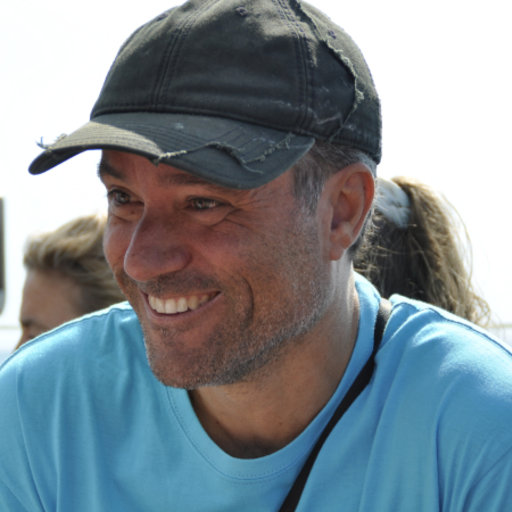 Senior marine biologist with over 20 years of experience in marine ecology and biology. Based at the Institute of Marine Sciences (ICM-CSIC) in Barcelona, I specialize in interdisciplinary research, training, and knowledge transfer. My work addresses key challenges in marine conservation and sustainability, with a strong emphasis on linking science to policy and society.
Senior marine biologist with over 20 years of experience in marine ecology and biology. Based at the Institute of Marine Sciences (ICM-CSIC) in Barcelona, I specialize in interdisciplinary research, training, and knowledge transfer. My work addresses key challenges in marine conservation and sustainability, with a strong emphasis on linking science to policy and society.
Research Focus
● Impacts of the Blue Economy (e.g., commercial and recreational fisheries, leisure boating, cruises, offshore wind energy) on marine ecosystems
● Effects of global change on marine biodiversity, particularly vulnerable species and habitats
● Fish health and its role in the sustainable management of fishery resources
● Marine Protected Areas as tools for conservation and contributors to human health and well-being
● Interactions between marine ecosystems and human health, including:
– Seafood security and safety
– Physical and mental health benefits of marine-related activities
– Health risks associated with marine ecosystems
– Bioactive marine organisms as potential sources of new medicines.
Rui Coelho
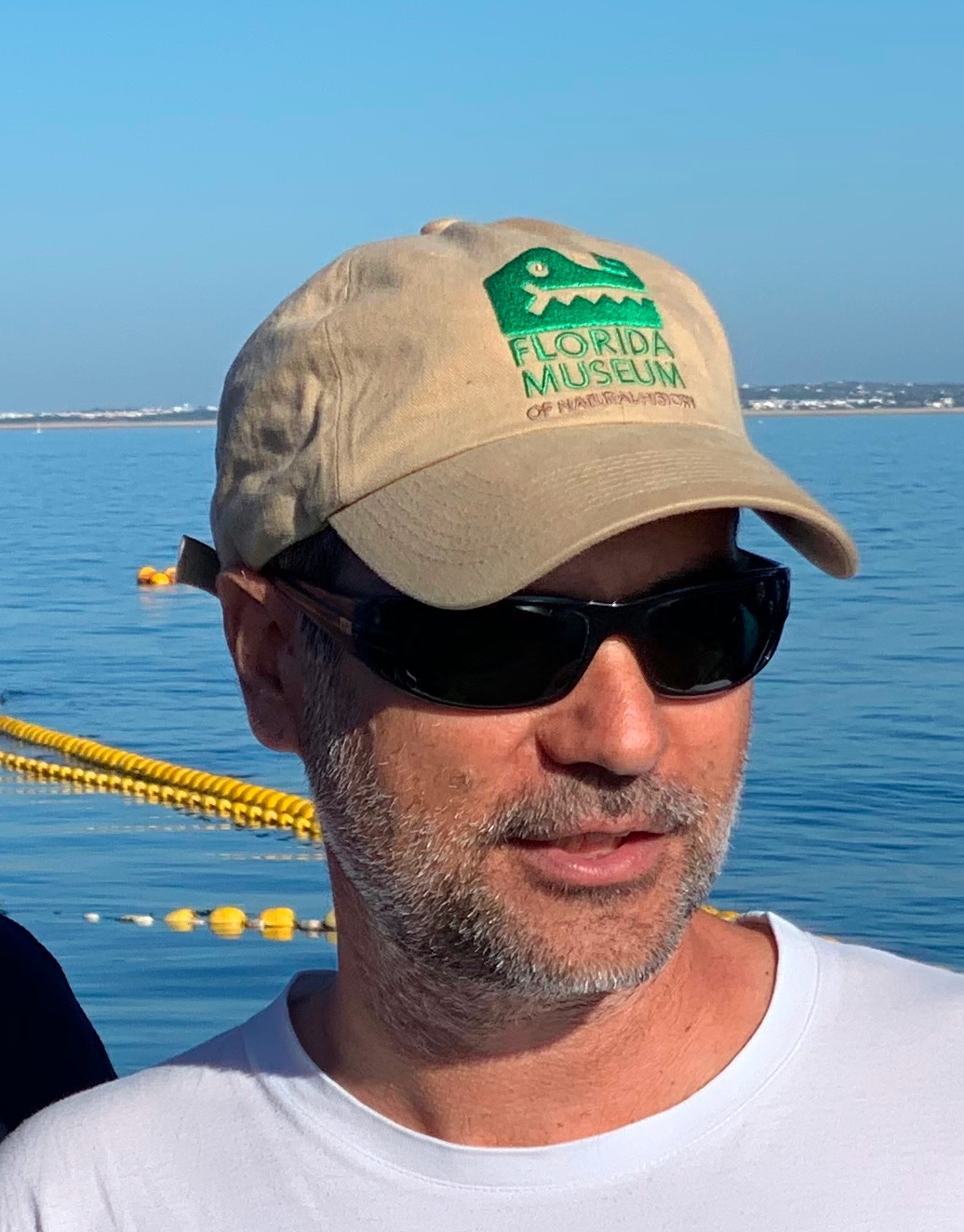
Rui Coelho is a Principal Researcher at the Portuguese Institute for the Ocean and Atmosphere (IPMA), where he co-coordinates the Highly Migratory Species research team. He graduated in Biology from the University of Lisbon (2000), holds a PhD in Fisheries Biology from the University of Algarve (2007), and an MSc in Statistical Modelling from the University of Évora (2013). From 2008 to 2010, he was a Post-Doctoral Fellow at the Florida Museum of Natural History, University of Florida (USA). His work focuses on data collection, population dynamics, stock assessments and scientific advice for the management of tuna, swordfish, and shark stocks in the Atlantic and Indian Oceans, as well as on interactions and mitigation of impacts on vulnerable species such as sea turtles and seabirds.
Rui’s work is directly linked to the provision of scientific advice to tuna Regional Fisheries Management Organizations in the Atlantic (ICCAT) and Indian (IOTC) Oceans. He has held several leadership roles in the Scientific Committees of those bodies, including Chair of the IOTC Working Party on Ecosystems and Bycatch (2014–2017), Chair of the IOTC Working Party on Billfishes (2017–2019), Chair of the ICCAT Atlantic Swordfish Group (2015–2020), and Vice-President of the ICCAT Standing Committee on Research and Statistics (SCRS) (2018–2021). Since 2021, he has chaired the ICCAT Subgroups on Electronic Monitoring Systems and the Subgroup on Technical Fishing Gear Changes.
Rui is the author or co-author of over 110 peer-reviewed scientific papers and has presented more than 250 technical papers to Regional Fisheries Management Organizations. He has supervised several MSc and PhD students and has led or participated in numerous national and international research projects.
Wendell Medeiros-Leal
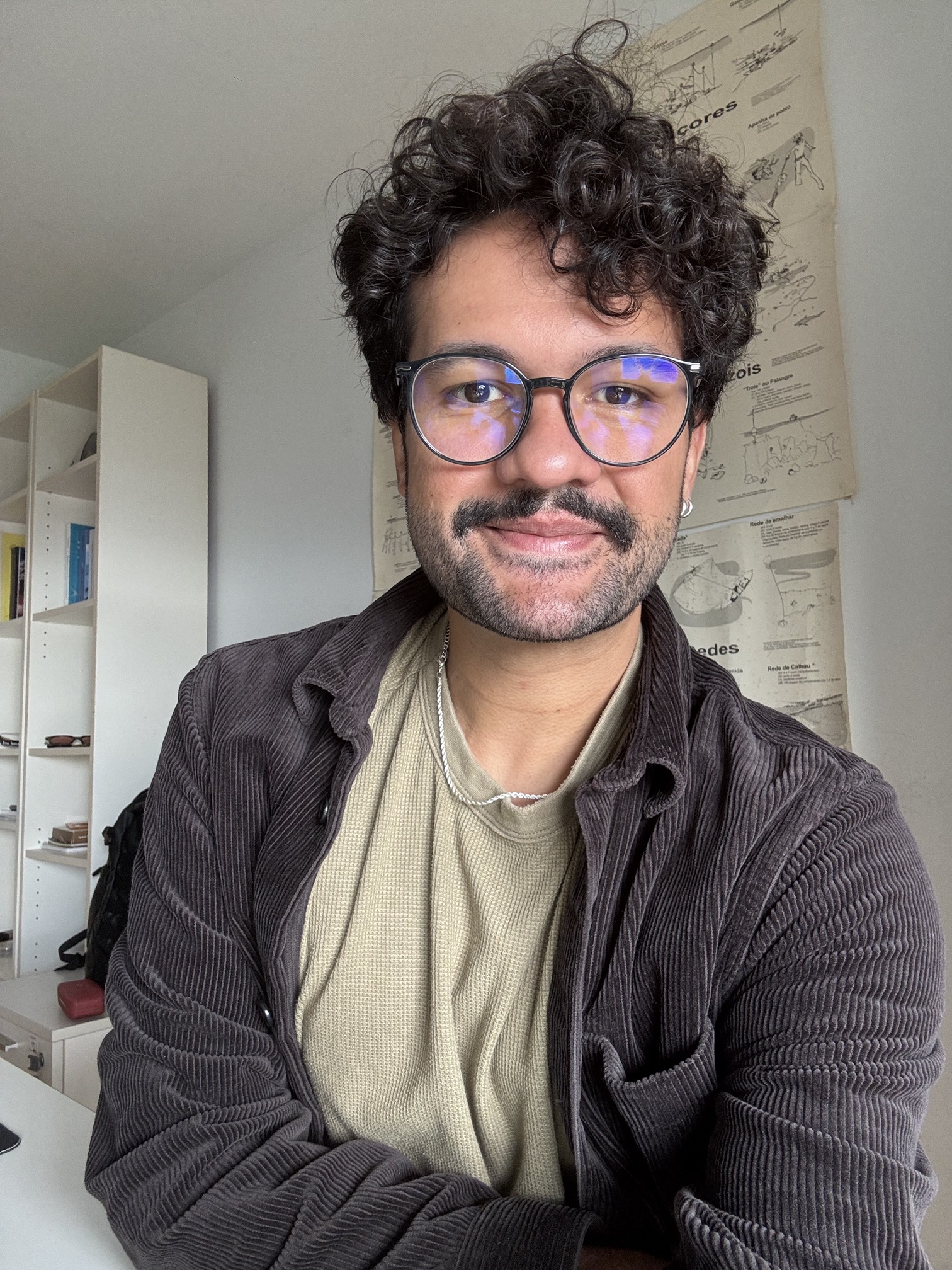 Wendell Medeiros-Leal is a fisheries scientist and PhD Candidate (FCT Fellow) at the University of the Azores and the National Institute of Aquatic Resources, Technical University of Denmark. His research focuses on improving the assessment and management of fish stocks, especially in data-limited and deep-sea fisheries. Over the past 10 years, he has worked on stock assessments and population dynamics of commercial species across diverse ecosystems, including the Azores, Skagerrak, Southern Africa, and the North and Northeast Brazilian shelf, as well as the Amazon.
Wendell Medeiros-Leal is a fisheries scientist and PhD Candidate (FCT Fellow) at the University of the Azores and the National Institute of Aquatic Resources, Technical University of Denmark. His research focuses on improving the assessment and management of fish stocks, especially in data-limited and deep-sea fisheries. Over the past 10 years, he has worked on stock assessments and population dynamics of commercial species across diverse ecosystems, including the Azores, Skagerrak, Southern Africa, and the North and Northeast Brazilian shelf, as well as the Amazon.
He has contributed to numerous research projects and actively participates in ICES working groups (WGEF, WGDEEP, and WKLIFE), where he coordinates assessments for species such as blackspot seabream and kitefin shark. His recent work focuses on developing stock-specific Management Strategy Evaluation (MSE) frameworks to define harvest control rules for vulnerable fish stocks. His work also contributes to the development of ICES guidelines for the assessment and management of data-limited stocks.
Margarita Rincón Hidalgo
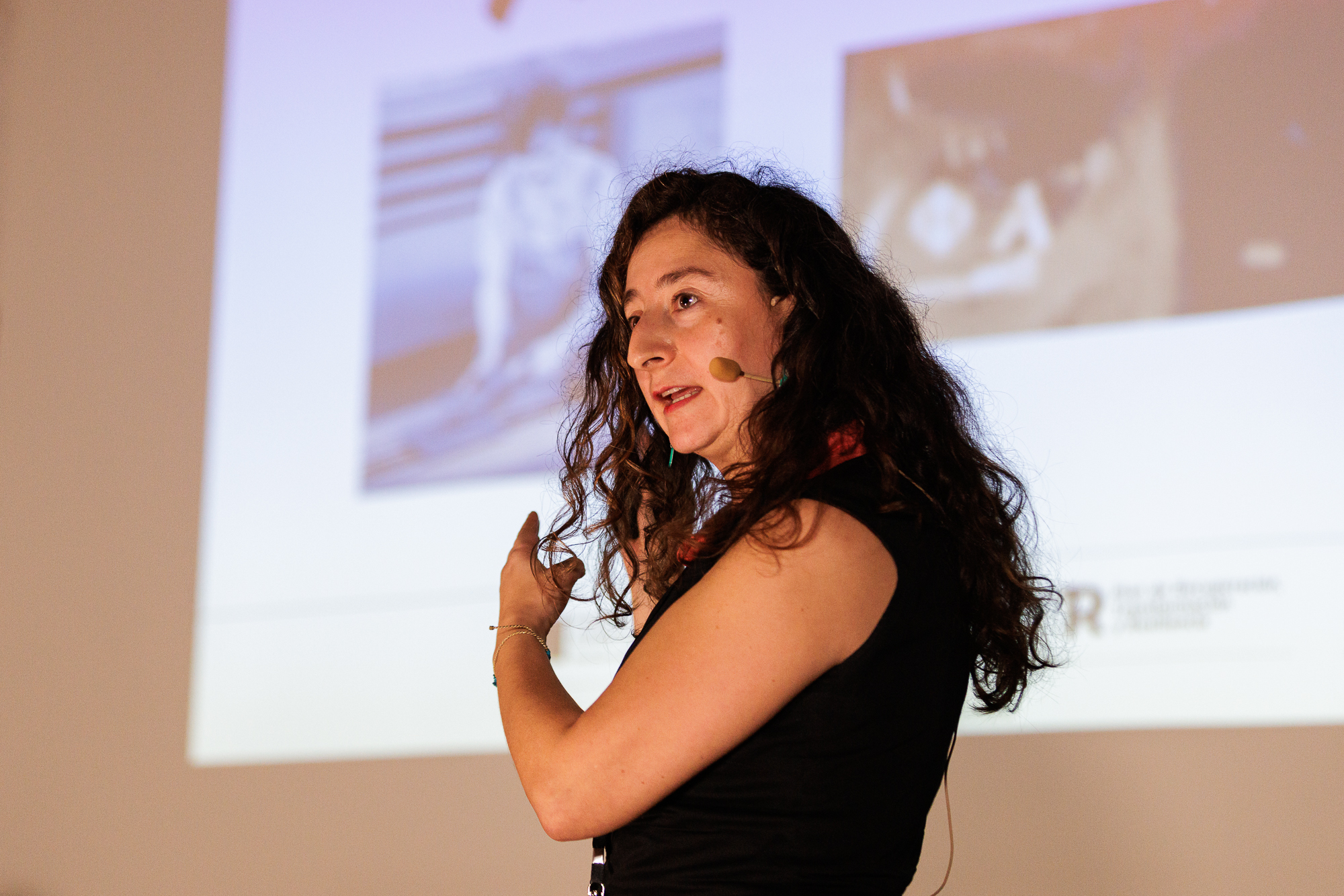
Margarita Rincón holds a degree in Mathematics from the National University of Colombia (Bogotá) and a PhD in Physics and Mathematics from the University of Granada.
Her doctoral research was focused on the mathematical-statistical modeling of the dynamics of commercially exploited fish populations. She has carried out postdoctoral research at the Spanish National Research Council (CSIC) and later became a senior scientist at the Spanish Institute of Oceanography (IEO-CSIC, Cádiz). Her work focuses mainly on the following research lines related to the sustainability of fisheries resources: Modeling the dynamics of fish populations incorporating the effect of fishing and the environment, stock assessment, development of tools for decision making and analysis of management strategies from an ecological and socio-economic point of view.
She has participated in multiple international and national projects (two as principal investigator), published widely, and contributed to more than 20 project deliverables. From 2019 to 2024 she served as national scientist in ICES working groups, specializing in anchovy stock assessment and mixed-fisheries modeling.
Currently, she works as a researcher for the European Commission, at the Joint Research Center in Ispra, Italy, advising on fisheries sustainability focused mainly on the Mediterranean Sea fisheries.
Format
This year’s SIMERPE will be organised exclusively for on-site participation.
SIMERPE 3 welcomes proposals for communications (oral and poster) in English, with abstracts provided in both English and Spanish or Portuguese. Submissions include original research papers, reviews, and syntheses on the following topics:
- Biological processes: The influence of natural mortality, growth, reproduction, connectivity, and trophic relationships on stock assessment.
- Fishing activity: The impact of discards, discard survival rates, landing obligations, or misreporting on stock assessment. Selectivity, effort and technical measures.
- Model calibration: The role of surveys, CPUEs, and fishing effort in refining assessment models. New technologies such as Close Kin Mark Recapture, UnderWater TV, eDNA, etc
- Assessment, and management strategies: Approaches ranging from data-limited to data-rich stocks, mixed fisheries, and multispecies assessments.
- Reference points: Metrics to evaluate stock and ecosystem status.
- Stakeholder engagement: Enhance stakeholder involvement from data collection to decision on management measures.
- Ecological considerations: The effects of climate change, species interactions, and environmental factors on fisheries and fish stocks.
- Economic and social aspects: The broader socio-economic implications of fisheries management.
- Spatial considerations: Connectivity, stock structure, and spatial population and fisheries dynamics.
- Ecosystem modeling and environmental indicators: Integrating ecosystem information to improve single-species stock assessments.
- Competing marine uses: Challenges posed by Marine Protected Areas, offshore wind farms, and other competing activities.
Contributions on these topics will be attributed to one of the following Theme Sessions:
Sessions
Opening Session
Opening Session || Ivone Figueiredo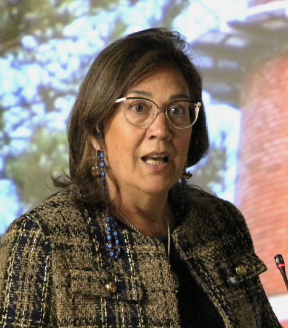
TITLE: Knowing the Unknown: Scientific Challenges in Monitoring and Advising the Sustainable Management of Exploited Fishery Resources and Their Habitats
ABSTRACT:
Fisheries are vital to global food security, supplying roughly 20% of the animal protein consumed worldwide and supporting millions of livelihoods, particularly in small-scale and artisanal communities. However, growing fishing pressure has led to widespread overexploitation, with around one-third of global fish stocks now classified as biologically unsustainable. This trend threatens both marine ecosystems and the socio-economic stability of communities that depend on them.
Sustainable fisheries management relies on robust scientific monitoring and high-quality data. Techniques such as acoustic surveys, scientific trawling, remote sensing, and genetic or biochemical analyses provide essential information on stock abundance, recruitment, mortality, fishing effort, and environmental variability. These data underpin stock assessments and ecosystem-based management frameworks. Despite advances, key challenges remain—particularly the accurate definition of stock units. Misaligned biological boundaries can lead to incorrect assessments of abundance, productivity, and mortality, undermining effective management.
A comprehensive understanding of species’ biology and dynamics is fundamental to evaluating population resilience to exploitation. Emerging methods, including isotopic and elemental analyses, enable reconstruction of migration routes, habitat use, and environmental histories, supporting more accurate spatial–temporal modelling. Modern ageing techniques—such as integrated models, Bayesian approaches, morphometrics, and spectroscopy—have improved the precision of age determination, while metrics including age and size at maturity remain central to estimating spawning stock biomass (SSB), a key although imperfect indicator of reproductive potential. Density-dependent processes, particularly compensatory growth at lower population densities, are also critical for understanding productivity and resilience.
The spatial structure of fish populations profoundly influences sustainability and management outcomes. Spatially explicit modelling approaches—including area-based assessments, metapopulation frameworks, and advanced spatio-temporal statistical models—are increasingly needed to align management measures with ecological realities.
Management Strategy Evaluation (MSE) has emerged as a crucial tool for ensuring that fisheries deliver food, income, and economic security while maintaining ecosystem integrity. MSE provides a rigorous process for testing alternative management strategies under uncertainty. Within this framework, decision rules translate perceived stock status into management actions such as total allowable catches, spatial closures, or adjustments to fishing effort. Validating all model components—through hindcasting, comparison with historical data, and testing under conditions of perfect knowledge—is essential for credibility and realism. Importantly, MSE processes must involve managers, scientists, advisory bodies, and stakeholders from the outset to ensure transparency, legitimacy, and the inclusion of local and traditional knowledge.
Integrating scientific monitoring, population dynamics, spatial structure, life-history traits, reproductive metrics, and management strategy evaluation provides the foundation for balancing sustainable exploitation with the long-term conservation of marine resources.
SESSION 1: From tradition to innovation: progress for data-rich stock assessment and management strategy evaluation
Conveners: Leire Ibaibarriaga (AZTI, ES), Rui Coelho (IPMA, PT) and Santiago Cerviño (IEO-CSIC, ES)
In the middle of the 21st century, stock assessment and fisheries management for single data-rich stocks continue to be the cornerstone of fisheries science. Despite being rooted in the same conceptual principles, the underlying data, models and methods are very different from those used in the past. Cutting-edge tools and techniques are continuously being developed and incorporated with the final aim of improving the scientific advice that ensures the sustainability of marine resources.
In this session we invite contributions that showcase the most recent advancements and developments into the following four broad topics:
Data informing stock assessment and management advice – biological parameters and life-history traits, data collected from scientific surveys, monitoring of commercial fisheries and any alternative innovative source of information (genetics, robotics, electronic monitoring systems, etc).
Stock assessment models – new statistical methods, model developments, inclusion of spatial aspects, model ensembles, non-stationary processes, etc.
Management Strategy Evaluation (MSE) – development of operating models, testing key uncertainties, developing and testing harvest control rules and management procedures, robustness tests, including in face of changing environment conditions and climate change, the role of stakeholders on MSE, etc.
Management adice and decision making – reference points, management objectives, management measures, risk assessment, socio-economic aspects, developing tools for effective communication with stakeholders, etc
Join us to discover how innovation is driving progress in stock assessment and fisheries management!
Keynote Session 1 – 45:00’ || Dorleta Garcia
TITLE: Quarter Century Reflections: Challenges, Breakthroughs, and the Way Forward
ABSTRACT:
Now that a quarter of century has passed, it is an opportune moment to reflect on the key developments of the past 25 years, examine the challenges we currently face, and consider how they might be addressed in the future. The period began with the rise of management strategy evaluation (MSE) and a growing emphasis for ecosystem-based fisheries management (EBFM).
MSE was initially postulated as a solution to many longstanding problems in fisheries management. However, after 25 years, implementation remains relatively limited and uneven across fisheries organizations. On the stock assessment front, the emergence of state-space and integrated models stands out as a transformative shift in how data are analyzed and underlying assumptions are framed.
Genetics, that gained popularity in the last decade, represented a revolution in the definition of stocks units which is always controversial. The definition of stock units was usually driven by management factors and genetics allowed us to define them based on biological considerations. However, increasing knowledge has also created a big challenge related to stock mixing from both assessment and management perspective. Environmental DNA and stock assessment based on genetic tagging (known as close-kin mark-recapture, CKMR) are other less implemented tools that have a great potential to revolutionize stock assessment in the short term.
The rise of genetics over the last decade has significantly reshaped the way stock units are defined—often a contentious issue. Usually driven by management needs in the past, stock unit boundaries can now be better informed by biological insights, thanks to advances in genetic tools. However, this expanding knowledge base has introduced new challenges, particularly regarding stock mixing, with implications for both assessment and management. Techniques such as environmental DNA (eDNA) analysis and genetic tagging methods like close-kin mark-recapture (CKMR) remain underutilized but hold substantial potential to revolutionize stock assessment in the near term.
As for EBFM, while a range of full ecosystem models are now available and some improvements have been made in how fishing opportunities advice is formulated, the core principles underlying annual recommendations have remained largely unchanged.
Focusing on stocks in the Northeast Atlantic assessed by ICES, this talk will explore these and other recent advances in fisheries assessment and management, current challenges, and the paths we might take moving forward.
Session 1 Talk – 30:00’ || Rui Coelho
TITLE: Progress in data collection, fisheries assessment and management of large migratory pelagic species
ABSTRACT:
Large migratory pelagic species, such as tunas, swordfish, and pelagic sharks, present unique challenges for data collection, fisheries assessment, and management. Their oceanic, transboundary nature means they inhabit and are exploited in both national and international waters, often by multiple fleets operating under different jurisdictions. These species are managed by international, multi-governmental bodies, called tuna Regional Fisheries Management Organizations (t-RFMOs), such as the International Commission for the Conservation of Atlantic Tunas (ICCAT), which manages these species in the Atlantic.
ICCAT is responsible for a broad range of species, ranging from some of the most data-rich stocks globally (e.g., bluefin tuna) to some of the most data-limited (e.g., certain pelagic sharks and small tunas). Accordingly, a wide array of stock assessment methods has been used, from data-intensive, fully integrated models (e.g., stock synthesis) to simpler indicator-based and risk assessment approaches. In recent years, there has been a shift towards the use of Management Strategy Evaluation (MSE), a simulation-based framework that tests the performance of different Management Procedures (MPs) under a range of uncertainties, against the Management Objectives established by managers. While MSEs were initially applied to the more data-rich stocks (e.g., bluefin tuna), they are increasingly being considered for data-limited or data-moderate species (e.g., blue shark) and even multi-species complexes (e.g., tropical tunas). It can be argued that MSE is even more necessary in such data-limited situations, as the inherent uncertainties in those stocks are much larger, and therefore the risks of relying on single traditional stock assessments are also greater.
Progress in data collection has also been made in recent decades, although significant gaps and limitations remain for many fleets. Some of the most important recent advances include the adoption of minimum standards for Electronic Monitoring Systems (EMS). These systems have already started to be implemented for some larger industrial fleets, and simplified EMS standards are also being developed for smaller-scale fisheries that impact migratory species, and where traditional data collection systems (e.g., logbooks or onboard observers) are even more complicated to implement. These developments, including the ongoing improvements in data collection and harmonization, and the adoption of MSE frameworks, are helping to address both traditional and emerging challenges in the management of large migratory pelagic species.
SESSION 2: Assessment and management of data-limited stocks
Conveners: Marta Cousido (IEO-CSIC, ES), Sonia Sánchez-Maroño (AZTI, ES) and Teresa Moura (IPMA, PT)
Methods and tools for assessing data-limited stocks have advanced significantly in recent years, offering new opportunities to improve fisheries management despite limited data availability. This session will explore the latest methodological advances and their application for assessing and managing data-limited stocks, including the following topics:
Length-based assessments and surplus production models- methodological advances and new applications;
Empirical indicators and harvest control rules (HCRs)- understanding the performance of existing as well as the development of new ones;
Design and implementation of simulation frameworks for data-limited stocks
Reference points – a key challenge in data-limited assessments;
Improve stock assessment approaches for long- or short-lived species, elasmobranchs, cephalopods and other sensitive or rare species.
Keynote Session 2 – 45:00’ || Tobias Mildenberger
TITLE: Navigating Uncertainty: Modeling and Managing Data-Limited Fisheries in the Northeast Atlantic
ABSTRACT:
Managing fish stocks under uncertainty is central to ensuring both ecological integrity and the sustainable use of marine ecosystems. While the Northeast Atlantic is generally considered a data-rich region due to its long history of fisheries and monitoring, more than half of its assessed stocks were classified as data-limited in 2024. This apparent paradox highlights the persistent challenges in aligning available information with the needs of robust stock assessment and management.
Data limitations create substantial uncertainty about stock status and the underlying population dynamics, challenging the foundation of sustainable management. To address this, specialized assessment approaches and precautionary harvest control rules are needed, approaches that can operate effectively despite limited or imprecise data. Central to their development are closed-loop simulation–estimation frameworks, which allow researchers and managers to rigorously evaluate trade-offs among short-term yields, long-term sustainability, and the risk of stock depletion. These tools not only support the design of robust management procedures but also underpin transparent and science-based advice on catch limits and stock status classification.
In this keynote, I will explore the characteristics and challenges of data-limited stocks in the Northeast Atlantic, review the suite of methods currently applied, and reflect on the evolution of these tools through more than a decade of ICES workshops dedicated to this theme. Drawing on insights from 14 such workshops, I will highlight key innovations, lessons learned, and practical outcomes that have shaped the current advisory framework. Finally, I will discuss emerging challenges and opportunities in assessing and managing data-limited stocks, both in the Northeast Atlantic and globally, as we move toward more precautionary, adaptive, and ecosystem-based advice grounded in the best available science.
Session 2 Talk – 30:00’ || Wendell Medeiros-Leal
TITLE: Advancing Stock Assessment for Deep-Sea Fisheries Under Data-Limited Conditions
ABSTRACT:
Deep-sea fish and elasmobranch species are particularly vulnerable to overfishing due to their life-history traits. Assessing and managing these stocks is especially challenging under data-limited conditions. This presentation explores how empirical length-based indicators, combined with the Stochastic Surplus Production Model in Continuous Time (SPiCT), can improve stock assessments in such contexts.
The talk will also cover a Management Strategy Evaluation (MSE) framework designed to test alternative harvest control rules using real SPiCT-based assessments. This approach supports the identification of risk-averse and effective strategies for managing vulnerable deep-sea stocks under uncertainty.
Preliminary results from applying these methods to demersal fisheries along the coasts of Angola and Brazil will be presented, highlighting their potential to inform sustainable management in data-limited regions.
SESSION 3: Beyond Single Stock Assessment: Integrating Ecosystem Considerations into Fisheries Management
Conveners: Dorota Szalaj (IPMA, PT), Ricardo Alpoim (IPMA, PT) and Susana Garrido (IPMA, PT)
There is a growing recognition among scientists, fisheries managers, and stakeholders that sustainable and effective fisheries management must extend beyond single-species assessments. A holistic approach that explicitly incorporates environment and ecosystem considerations is essential to achieving long-term fisheries sustainability and resilience in marine ecosystems. This shift aligns with the principles of Ecosystem-Based Fisheries Management (EBFM), a key objective of European and global fisheries policies. While significant strides have been made toward EBFM, including several successful implementations worldwide, challenges remain in fully integrating ecosystem information into fisheries management frameworks.
This session provides a platform to explore the latest advancements in multispecies models and ecosystem-based research, addressing both the needs and the pragmatic solutions required for incorporating environment and ecosystem information into fisheries management and ICES advice. By bringing together experts in the field, we aim to facilitate discussions on how ecosystem-informed fisheries management can be effectively implemented and identify actionable steps toward this goal.
We invite contributions on a broad range of topics, including but not limited to:
• Multispecies Models – Advancing approaches that account for species interactions and food web dynamics.
• Enhancing Single-Species Assessments: Using ecosystem models or ecosystem-derived information to improve traditional stock assessment methods.
• Ecosystem Modelling- Developing tools and methodologies to derive ecosystem indicators and ecosystem information to improve single-species assessments.
• Development of Ecosystem Reference Points- Establishing ecological/ecosystem benchmarks that guide sustainable management decisions.
• Integrating Environment and Ecosystem Information into MSE- Management Strategy Evaluation (MSE) approach, as robust method for advancing ecosystem-based fisheries management.
• Environmental and Ecological Considerations- Addressing climate change, habitat degradation, species interactions, and other environmental factors in fisheries management.
• Case Studies – Showcasing real-world examples of ecosystem-based approaches in fisheries management, demonstrating successful implementation and lessons learned.
Keynote Session 3 – 45:00’ || Anna Rindorf
TITLE: Realising Ecosystem Based Fisheries Management: what will it take?
ABSTRACT:
Ecosystem Based Fisheries Management considers both ecological and social sustainability of the fished stocks in the constantly changing environment that the sea presents. It is ideally based on combined management advice for relevant aspects of ecological and human wellbeing, building on reliable forecasts of the development of items of interest under various management decisions.
This presentation outlines examples of how impacts of management measures and climate change on target species, wider ecologies, and fishing fleets, alongside the broader society can be modelled without having models that include all components of the ecosystem in full detail. Following agreement on items of interest, the presentation examines results of tailored Ecosystem Management Strategy Evaluation (E-MSE) models focusing on key species and processes, fit to data and accounting for uncertainties. Across the European seas, the E-MSE models demonstrate that current fisheries management performs poorly on ecological aims but better on some social aims. Restrictive management such as that based on FMSY with strict implementation of a landing obligation can enhance ecological performance in some areas. However, they lead to substantial declines in simulated long-term catches with a subsequent deterioration in social indicators, including the number of meals produced from the catches and hence European food supply. Further, the declining productivity of some stocks under future climate conditions will lead to less fish biomass produced, and lower performance on social aspects in the future. The models indicated that the effect of closed area management depended on whether the areas closed contained the species or habitats of interest and how effort was redistributed. The closures generally decreased performance on social aspects, as catch rates declined, and operating costs and carbon emissions increased. The same effects occurred when increasing mesh size while gear changes shifted pressures between different ecological components.
The impacts of management scenarios and climate change differed between small- and large-scale fisheries, but neither of these fleet segments consistently performed better on ecological or social objectives than the other. Across studies, the measures required to attain the aims of fisheries management were often in conflict, and required decisions on how to weigh different considerations to identify attainable targets for fisheries management. In some cases, the model predictions varied greatly between different models. As a result, investigating only output of a single model leaves decision making open to acting on structural uncertainty or bias and to attempting to reconcile differences in the predictions of different research groups. Both factors decrease trust and buy-in from scientists, managers and stakeholders, as well as the demonstrated reliability of advice used to underpin management decisions and as a result, may lead to low uptake of this type of advice. Finally, the barriers to operationalizing EBFM for both ecological and social priorities are discussed together with the need for information to support management decisions.
Session 3 Talk – 30:00’ || Margarita Rincón Hidalgo
TITLE: Multidimensional framework for implementing EBFM: social, economic, and environmental dimensions of the ecosystem
ABSTRACT:
Ecosystem-Based Fisheries Management (EBFM) is a holistic approach that considers the complex interactions between fish populations, their environment, and human activities. However, operationalizing EBFM in practice remains a significant challenge. This talk will outline a multidimensional framework for implementing EBFM, incorporating the social, economic, and environmental dimensions of the ecosystem. At the heart of this operationalization are two key components: the willingness of stock assessors to incorporate new information and indicators into their annual assessments, and the use of Management Strategy Evaluation (MSE) as a rigorous testing ground for evaluating the impact of different management strategies and ecosystem considerations. The stock assessor’s output ultimately informs the quota-setting process, making their buy-in crucial for integrating EBFM principles into management decisions. Meanwhile, MSE provides a powerful tool for simulating the effects of different management scenarios, allowing managers to test the potential consequences of incorporating new factors, such as environmental variability, habitat impacts, or economic considerations, into the assessment process. By using MSE to evaluate the effectiveness of different management strategies and to identify key indicators and thresholds, we can build a robust case for incorporating new information into the stock assessment, and ultimately, into the quota-setting process. This talk will explore the interplay between these two components, and will provide practical examples and case studies to illustrate the challenges and opportunities of operationalizing EBFM, with a focus on the role of stock assessors and MSE in driving more sustainable and ecosystem-based fisheries management.
SESSION 4: Competing marine uses to fisheries: challenges posed by Offshore Wind Farms and Marine Protected Areas
Conveners: Alexandra Silva (IPMA, PT) and Sofia Henriques (IPMA, PT)
Marine ecosystems are increasingly challenged by spatial competition as offshore wind farms (OWFs) and Marine Protected Areas (MPAs) expand, coexisting alongside fisheries and other maritime activities. This session will examine the impact of these competing uses on stock assessment and fisheries management. Access restrictions imposed by OWFs and MPAs may displace fishing activities, altering fishing methods and leading to shifts in catch composition, selectivity, and revenue. Additionally, scientific monitoring within these designated areas may be constrained, necessitating the adoption of innovative survey techniques and new monitoring technologies. The session will also explore strategies to mitigate conflicts, promote co-existence, and ensure the long-term sustainability of fisheries in the face of these evolving challenges.
In this session we invite contributions on the following topics:
• Spatial Competition and Fisheries Displacement – Examining how the expansion of OWFs and MPAs influences fishing effort distribution, fleet behavior, and economic impacts on fisheries.
• Changes in Fish Stock Monitoring Methods – Investigating how access restrictions affect traditional survey techniques and exploring alternative stock assessment approaches, such as remote sensing, eDNA, and autonomous underwater vehicles.
• Socioeconomic Impacts on Coastal Communities – Analyzing the impact of these competing marine uses on the livelihoods of fishers and associated industries produced by changes in fishing access, catch composition, and selectivity, among others.
• Conflict Resolution and Coexistence Strategies – Exploring policy solutions, stakeholder engagement processes, and technological innovations (e.g., real-time spatial management, gear modifications) to mitigate conflicts and enhance synergies between fisheries, OWFs, and MPAs.
Keynote Session 4 – 45:00’ || Josep Lloret
TITLE: Promoting Sound Marine Spatial Planning of Offshore Wind Energy to Minimize Impacts on Marine Biodiversity and Fishery Resources: A Mediterranean Case Study
ABSTRACT:
This talk will explore how effective planning of offshore wind energy—a rapidly emerging industrial activity in the Mediterranean Sea—can help avoid or minimize ecological impacts and prevent socio-environmental conflicts, thereby supporting a just energy transition. Emphasis will be placed on the importance of data-driven planning that incorporates biological, social, and economic information at the regional and local scales.
Drawing on insights from two ongoing research projects I coordinate—BIOPAIS and NID4OCEAN—at the Institute of Marine Sciences (ICM-CSIC), I will present evidence on the potential impacts of offshore wind farms (OWFs) on sensitive species, vulnerable habitats, fishery resources, and marine protected areas (MPAs) in the Mediterranean. The talk will argue that OWF development should be excluded from areas of high ecological value, including MPAs and adjacent buffer zones, where the environmental risks may outweigh the benefits of climate change mitigation.
I will highlight the need for marine spatial planning that is scientifically grounded, based on accurate and context-specific data. Moreover, I will stress the importance of early and meaningful engagement with coastal stakeholders—such as fishers, tourism operators, civil society, and environmental NGOs—to ensure that the development of offshore wind energy is both environmentally sustainable and socially equitable.
All participants need to register. There is no registration fee.
Register today for the symposium
Deadline: July 13th, 2025
Submit your abstract today
Deadline: May 16th, 2025
Key Dates
- Deadline abstracts submission: May 16th, 2025
- Abstract revision: June 20th, 2025
- Notification abstract acceptance: July, 1st, 2025
- Registration deadline: July 13th, 2025
- Symposium: November 4th (Tuesday, 9h) to November 7th (Friday, 13h), 2025
Venue
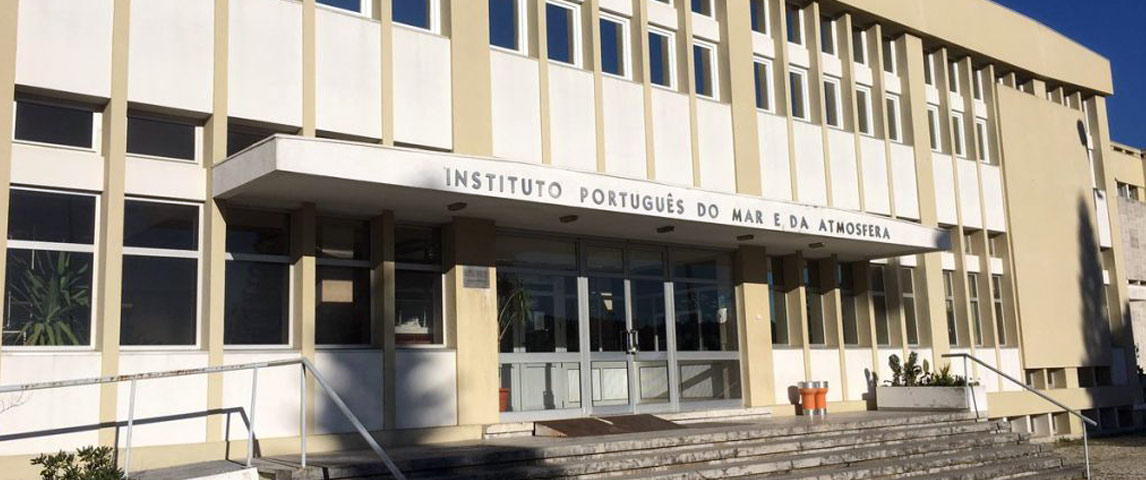
IPMA
Instituto Português do Mar e da Atmosfera, Av. Alfredo Magalhães Ramalho, 6, 1495-165 Lisboa
How to get to IPMA
IPMA has facilities in various parts of the country, Algés being one of them. In Algés, IPMA is located at Rua Prof. Doutor Magalhães Ramalho 6, 1495-165 Lisboa, Portugal (see here). The institute is a 5-minute walk from Algés, which is served by train (Cascais<->Cais-do-Sodré line) and streetcar (number 15). It is also easily accessible by car. On foot from Algés train station, our building is the large complex on the right, near a large traffic roundabout after passing the tunnel under the train line.
By train
Use the Cascais-Lisbon train line (also known as the “Cascais Line”) from Cascais (~30 min), Oeiras (~15 min), Belém (~5 min) or Lisbon City Center/ Cais-do-Sodré (~10-15 min). Get off at Algés train station and turn right (river side). Our building is the large yellowish complex, near a large roundabout that you see after exiting. Note: Cais do Sodré train station is connected to the Lisbon metro network. This network connects to the airport via the red line and the green line. Timetable
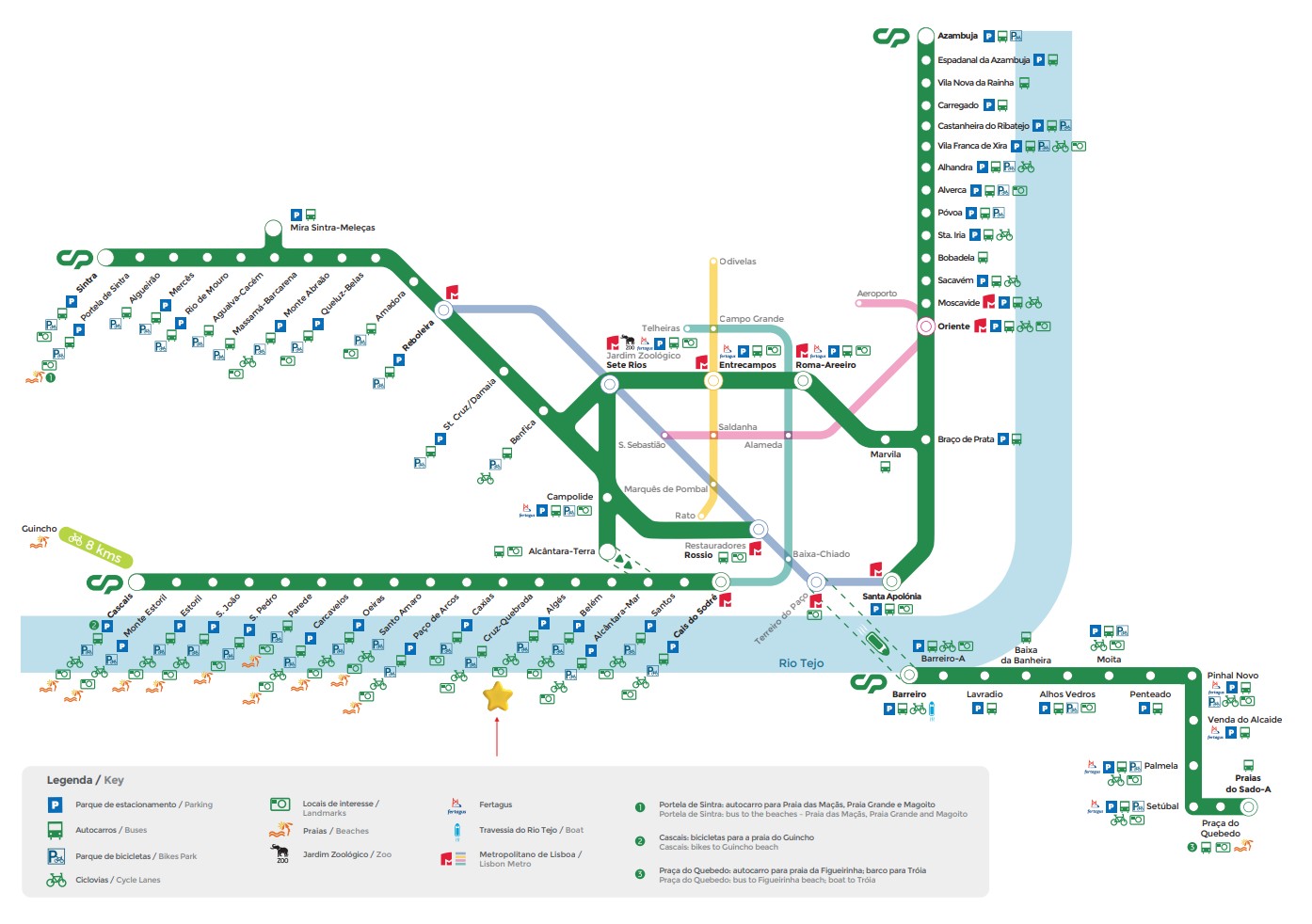
Subway + Train to Algés

By tram
Take tram15E from the center of Lisbon / Cais do Sodré (~60 min) or Belém (~30 min) and get off at the “Algés – Praça D. Manuel I” station. Walk towards the nearest train station and use it to cross under the train tracks towards the river. Exit on your right. Our building is the large yellowish complex, near a large traffic circle that you see after exiting. See also Information Buses
By car
From the North (Lisboa Norte): take the IC17 towards Algés and go all the way south, passing over the train line and following the signs for Lisbon. You’ll come directly to the IPMA traffic circle. Turn left (3rd exit) and then 1st right to enter the IPMA parking lot.
From the west (Cascais, Oeiras): head east on Avenida Marginal, pass Algés and keep to the right to go over the train tracks to the river bank. Make a U turn at the next exit to head west in the left lane onto Av. Brasília. Brasília. At the end of the road is the IPMA traffic circle. Turn left (2nd exit) and then 1st right to enter the IPMA parking lot.
From the east (Belém, central Lisbon): Head west on Av. 24 de Julho or Av. De Brasília. If you are coming from the center of Lisbon on Av. 24 de Julho, you should cross the train line at Alcântara and continue west on Av. De Brasília. If you’re coming from Belém on Avenida 24 de Julho, you’ll have to make two U-turns to get to Av. de Brasília, so it’s best to use a GPS. Once you’re on Av. De Brasília, head west and stay in the left-hand lane until you reach the end. At the end is the IPMA traffic circle. Turn left (2nd exit) and then 1st right to enter the IPMA parking lot.
Committees
Scientific Committee
Alexandra Silva, Dorota Szalaj , Ivone Figueiredo, João Pereira, Leire Ibaibarriaga, Margarita Rincón, Marta Cousido, Ricardo Alpoim, Rui Coelho, Santiago Cerviño, Sonia Sánchez-Maroño, Susana Garrido, Teresa Moura
Organising Committee
Alexandra Silva, Carla Gameiro, Inês Farias, Susana Garrido
Partners & Funding


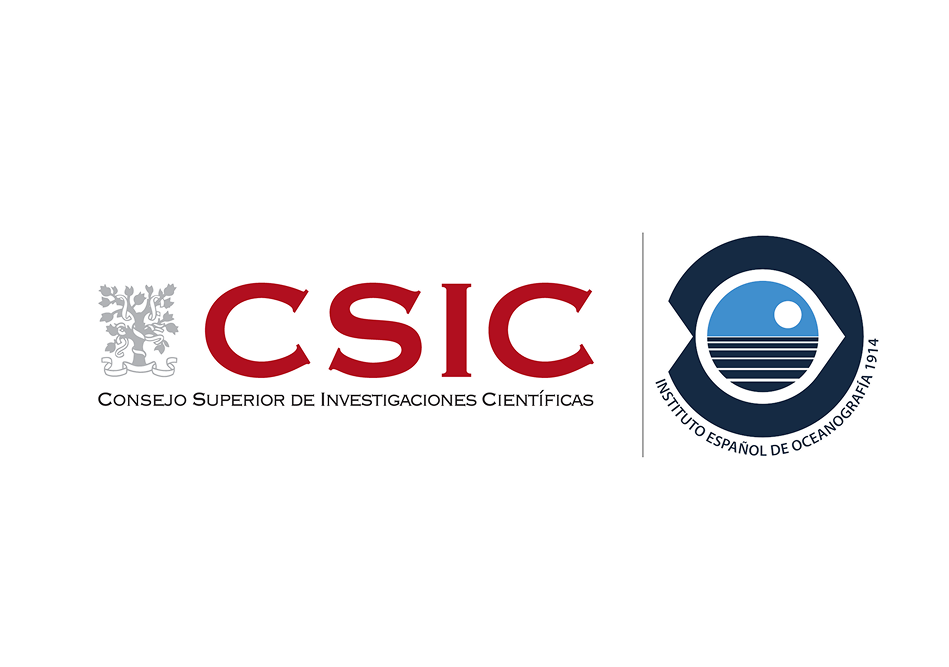
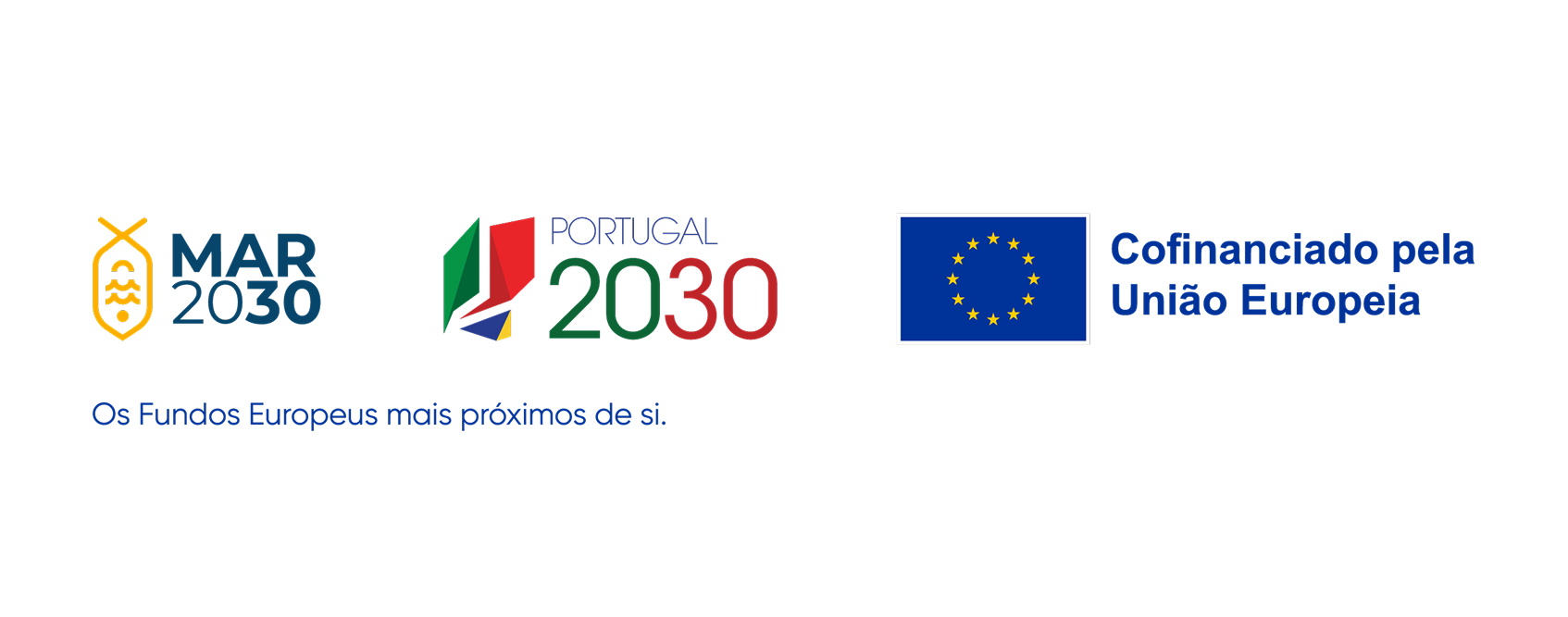
Programme
INSTRUCTIONS FOR ORAL COMMUNICATIONS
Type of talk:
Keynote talk – 45 min (30+15 Q&A)
Session talk – 30 min (20+10 Q&A)
Presentations – 20 min (15+5 Q&A)
– Each presenter will have 15 minutes to present their work, followed by 5 minutes for discussion.
– Presentations must be in English and prepared in Microsoft PowerPoint (PPT) using the 16:9 slide format. Click here to find the PPT template
– Your presentation must be delivered to the AV Regie (inside the auditorium) and give the file a name following this format “Session number_First name_Last name”
INSTRUCTIONS FOR POSTER PRESENTATIONS
– Posters must be printed on A0 paper size (1189 x 841mm) in portrait orientation.
– Click here to find the poster template
– The Welcome Desk will provide the necessary materials for presenters to hang their posters.
– Poster session will take place on Wednesday, 5 November, at 3:50 PM to 6:00 PM.
– Posters should be displayed at the earliest convenient time and must be removed by 1:00 PM on the final day of the event (Friday).